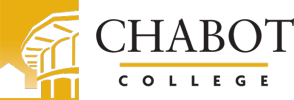
Accounting
This program map from the 2024-2025 catalog year represents one possible pathway to complete this program. Your pathway may vary depending on your transfer plans and also previous college credit, including AP Test scores, concurrent enrollment courses and high school articulated courses.
I'm ready to get started. What do I do next?
- Review this program map to get an overview of the required courses
- Meet with a counselor to develop your customized student education plan www.chabotcollege.edu/counseling
- Use DegreeWorks, an online student education planning tool, to track your progress toward graduation www.chabotcollege.edu / admissions / degreeworks
The three accounting programs are stackable: you start with the Bookkeeping certificate (20 units), take 3 more classes and earn the Accounting Technician certificate (27 units). Then add 3 more major courses and the general education classes (15 units) to graduate with the AS in Accounting (60 units).
The programs require a lot of time and intellectual commitment. All classes are available online, so you can complete all of these 3 diplomas fully online. This is NOT a program for transfer to a university. If your goal is to get a four-year degree in Accounting, you should complete the AS-T in Business Administration at Chabot, transfer to a university, and specialize in Accounting as part of your BA/BS in Business.
What can I do with this major?
By completing the Bookkeeping certificate, your career options include:
- An entry-level job within accounts payable and accounts receivable department, payroll units, income tax firms, or financial service organizations.
- Jobs are available in just about any corporate business and non-profit organization.
- Opening your own bookkeeping business.
As you start growing in your career, you will continue your studies with the next level certificate of Accounting Technician and the AS degree. After gaining some experience in an accounting career, you will usually find more career options. In some cases, you can use some credits earned in these programs to transfer to a four-year school and earn a bachelor’s in accounting, opening up many more accounting career options.
All of our classes in accounting and taxation could be used to meet education requirements for a CPA (certified public accountant) license.
Learning and Career Pathway
- Business, Economics & Information Technology
Icon Key
Semester 1
BUS
93
QuickBooks
List A Course #1
English 1- Critical Reading and Composition
BUS 7 Small Business Accounting 1
Semester 2
BUS
1A
Financial Accounting
BUS
92
Excel Spreadsheets for Accounting1
BUS
12
Introduction to Business
General Education Course- see a counselor to choose the appropriate general education pattern and general ed course option for this term.
Math Course: BUS 19 (Business Statistics) is recommended.
Semester 3
BUS
14
Business Communications
BUS
1B
Managerial Accounting
List A Course #2
General Education Course- see a counselor to choose the appropriate general education pattern and general ed course option for this term.
General Education Course- see a counselor to choose the appropriate general education pattern and general ed course option for this term.
Semester 4
BUS
6
Accounting Ethics
BUS
10
Business Law
List A Course #3
General Education Course- see a counselor to choose the appropriate general education pattern and general ed course option for this term.
General Education Course- see a counselor to choose the appropriate general education pattern and general ed course option for this term. PE is recommended.
List A
Select three courses from the list below.